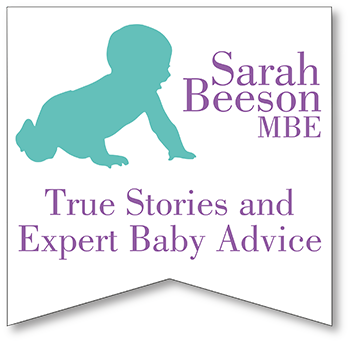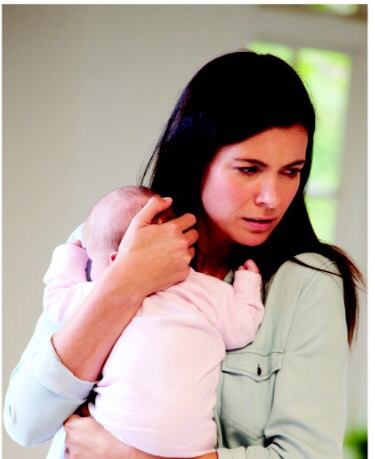Sarah Beeson talks to Kate Saines about Postnatal Depression in Just Her a magazine for military mums.
There’s advice and the EPDS quiz for mum’s on depression in Chapter Three of Sarah’s book Happy Baby, Happy Family.’
Mums with older babies get postnatal depression too, it’s not just when you have a newborn
“Postnatal depression, generally, is much higher than we realise because women either don’t want to say they have it, or don’t get an opportunity to say,” said Sarah, who is also author of Happy Baby, Happy Family.
But there are other factors, which Sarah believes provide a barrier to women coming forward. For one, there is a misconception that postnatal depression is suffered only by women with newborn babies.
In fact, Sarah believes the illness can occur in women whose babies are up to nine or ten months old and sometimes, even, in mums with toddlers.
“Often it’s seen in mothers with new babies,” she explained, “but usually it’s when the baby is three, four or five months old that postnatal depression can start.”
And it’s this misconception that discourages women from opening up to their health visitor, doctors or families – they believe they shouldn’t be feeling depressed at this stage.
Anyone, in any situation, from any background can get postnatal depression. Sarah said some women, maybe those who have lots of family nearby and seem to have a strong support network in place, often think they don’t deserve to seek help. But, said Sarah, everyone who recognises the signs should be frank and seek help, because support is there for all.
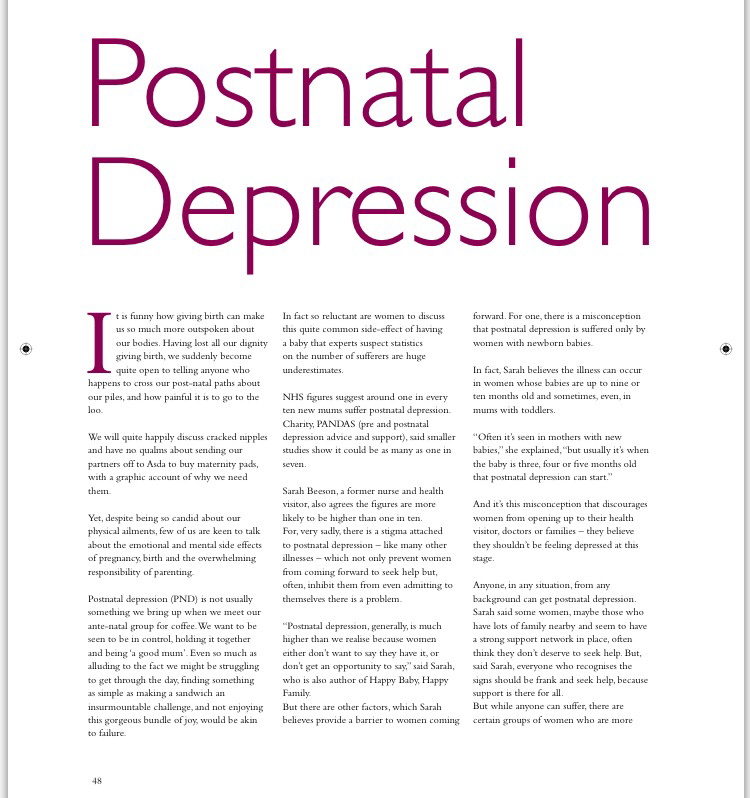 Why women with partners in the military are at high risk of postnatal depression
Why women with partners in the military are at high risk of postnatal depression
But while anyone can suffer, there are certain groups of women who are more vulnerable to postnatal depression, and this includes those whose partners are in the armed forces.
“It all falls on the women.” said Sarah, “The childcare, housework, keeping things together. Plus there’s all the worry. It’s almost as if they are not allowed to express feelings of isolation, stress and anxiety.”
“Some women can’t say anything. They can’t say it because that makes it real.” 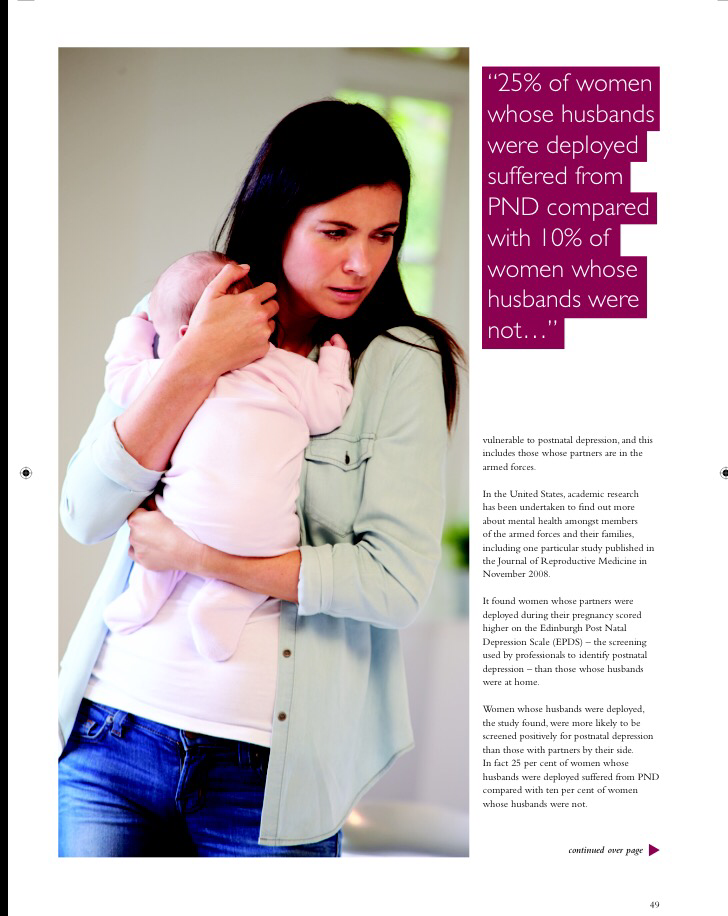 Importance of PND Support networks
Importance of PND Support networks
But Sarah believes that by actually admitting to these feelings, sharing them and admitting how you feel you are helping yourself on to the road to recovery.
But there are lots of other ways actually speaking out can help you. Sarah explained that there may be support in your area from charity Homestart which provides volunteers – who are all parents themselves – to help look after the kids while you have a sleep, do some housework or accompanying you on trips. In some areas there are PND support groups.
By speaking to friends, particularly those with babies the same age, you may find someone else who is the same situation.
Sarah said: “I have spoken to women who see other mums with babies and think ‘they know what they are doing’ but often those other women are looking at her and thinking exactly the same.
“When you are in the same boat there is a bond and support and often women going through PND can help each other and go on to have lasting friendships.”
Activities such as yoga can help with depression – some yoga teachers run classes where mums can bring their babies. Sarah also advises using relaxation CDs or DVDs and treating yourself to a spa day or back massage to provide some respite from the everyday strains. 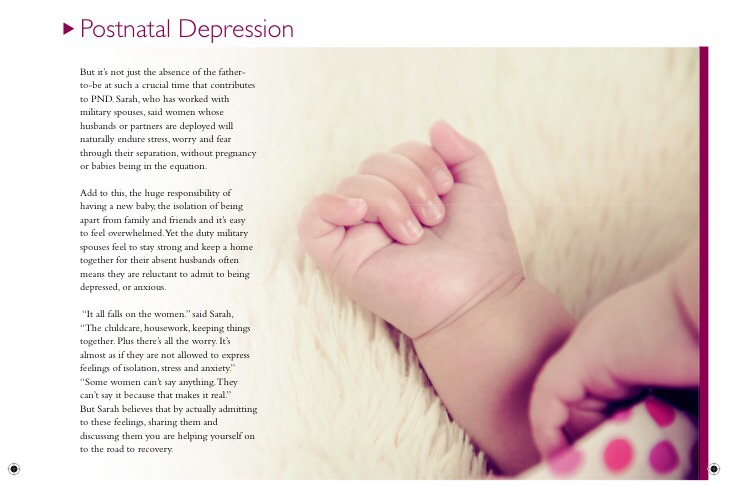 How to help a friend you think may be postnatally depressed
How to help a friend you think may be postnatally depressed
Finally, if you happen to be reading this and think a friend or family member might be suffering from postnatal depression you may be wondering how to approach them about the subject.
Sarah suggests opening a dialogue with them, rather than just asking “how are you?”
“As a health visitor, I would never just ask someone how they were because people generally always say they are well. Instead I would ask them what sort of week they had. This opens a dialogue and gives them permission to open up and not have to put on a front.” 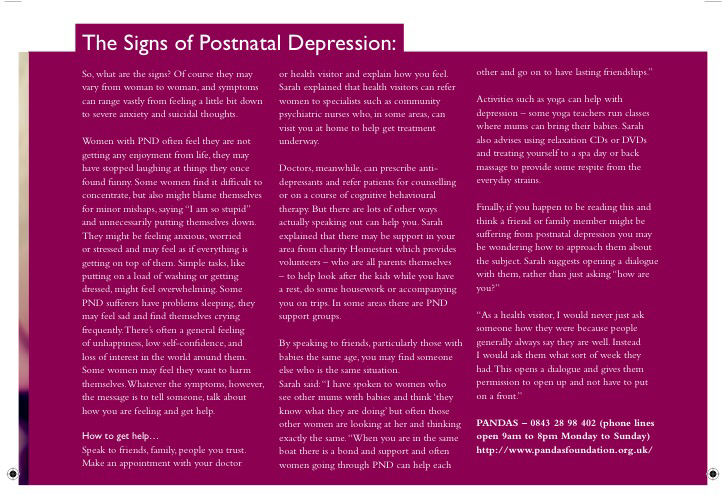
If you’ve got a question about your LO check out Ask Sarah or get in touch.
Sarah Beeson is a health visitor and author of Happy Baby, Happy Family. She writes with her daughter Mumpreneur and writer Amy Beeson. Sarah’s memoir of training to be a nurse in 1970s London The New Arrival is a heartwarming true story published by HarperCollins.
